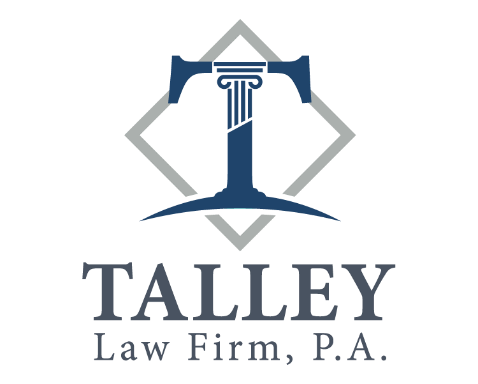|
January 31, 2025 The legislature was back in action this week, spending significant time in committees and on the floor after cancelling a number of meetings last week due to inclement weather. On Tuesday, House Majority Leader Davey Hiott (R-Pickens) announced that he will retire at the end of his current term and not seek reelection in 2026. Hiott, a businessman from Pickens, has served in the District 4 seat since 2005. Both bodies will meet in committees and in statewide session next week and on Wednesday, the House and Senate will convene in a Joint Session to elect members of the state’s judiciary.
Committee Work Energy reform was a hot topic at the State House this week, with House and Senate committees discussing the state’s energy landscape and various pieces of energy legislation. Members of the House LCI Public Utilities Subcommittee heard testimony on the SC Energy Security Act on Wednesday, but did not take any action on the legislation. It is expected that the subcommittee will debate proposed amendments next week. Members of the Senate Special Committee on SC’s Energy Future also met Wednesday, taking testimony on “solutions for large energy users” and hearing from stakeholders about what retail choice might look like for the state which is currently outpacing its energy capabilities. Governor McMaster also called for reviving the state’s failed VC Summer nuclear project in his State of the State address, urging the General Assembly to ensure that “our electric generation, distribution and transmission capacity and capabilities must be able to handle future economic development, anticipated technological advances, and population growth.” On Thursday, a Senate Judiciary Subcommittee moved forward a resolution by Senator Tom Davis (R-Beaufort) and thirty-seven others urging Santee Cooper to issue an RFP for proposals to bidders interested in utilizing VC Summer assets. The utility announced last week that they will seek proposals from companies to acquire and complete the two nuclear reactors that were left unfinished eight years ago. The subcommittee also moved forward legislation by Senate Judiciary Chairman Luke Rankin (R-Horry) and Senator Larry Grooms (R-Berkeley) which would allow Santee Cooper to enter into a joint build with investor owned utilities. Members of a Senate Medical Affair Subcommittee heard testimony on legislation by Senate President Thomas Alexander (R-Oconee), Senate Finance Chairman Harvey Peeler (R-Cherokee) and Senate LCI Chairman Tom Davis (R-Beaufort) that would consolidate several of the state’s healthcare agencies, reviving last year’s failed attempt to restructure a number of state agencies. Under this year’s version of the legislation, the Departments of Mental Health, Disabilities and Special Needs, and Alcohol and Other Drug Abuse Services would be combined into a new Department of Behavioral Health and Developmental Disabilities. The agency would be a cabinet agency, with the Director being appointed by the Governor and confirmed by the Senate. Members of the subcommittee heard an hour of testimony on the legislation by citizens and other interested stakeholders, but did not take any votes on the bill. It is expected that the subcommittee will reconvene next week. Members of a Senate Judiciary Subcommittee were poised to begin hearing testimony on tort reform legislation on Thursday but cancelled the meeting due to the Senate’s long hours in chambers. Tort reform is one of the General Assembly’s priority agenda items for this legislative session, with Representative Mark Smith (R-Berkeley) and thirty-three other House members introducing a House version of the legislation on Thursday.
Action on the Floor Members of the House debated changes to rules that govern their operations on Wednesday, voting 63-38 to make slight changes to how committees operate and how debate on the floor is conducted. The House eliminated the motion period on the calendar, and updated notice and procedural requirements for committee meetings and committee business. The House also removed the crossover deadline of April 10th, following the Senate’s decision earlier this year to eliminate the “arbitrary deadline” that mandated when legislation had to cross from one chamber to the other in order to be considered. The Senate spent long hours Wednesday and Thursday debating Senator Greg Hembree (R-Horry)’s “K-12 Education Scholarship Lottery” legislation, ultimately giving the bill second reading by a vote of 32-12 before adjourning for the week. Under Hembree’s legislation, the funding for the program would flow through the state lottery as opposed through the state’s general fund. This raised concerns for several Senators during Thursday’s debate with the source of funding being what Supreme Court ultimately ruled unconstitutional last year. Senators Wes Climer (R-York) and Josh Kimbrell (R-Spartanburg) offered a series of amendments that would make the program universal with a tax credit open to all South Carolina students, but two of those amendments were ruled out of order while the third was tabled by a 26-18 vote. After the bill receives third reading on Tuesday, it will head to the House for their consideration.
State of the State Governor Henry McMaster became the longest serving Governor in the state’s history on Wednesday, the same day he delivered his annual State of the State address to members of the General Assembly. In his address, McMaster highlighted the state’s accomplishments over the past years and laid out his legislative and budget requests to members of the House and Senate, stating that “we’re doing great, but we’ve got work to do in a number of places.” McMaster called on the legislature to overhaul the state’s joint and several liability statutes; cut personal income taxes; combine the Department of Mental Health and Department of Disabilities and Special Needs; and pass legislation to reinstate portions of the state’s Education Scholarship Trust Fund program. McMaster also requested that the legislature put safety resource officers in all public schools; provide funding to freeze tuition at the state’s higher education institutions; and raise the minimum starting salary for teachers to $50,000. |
















